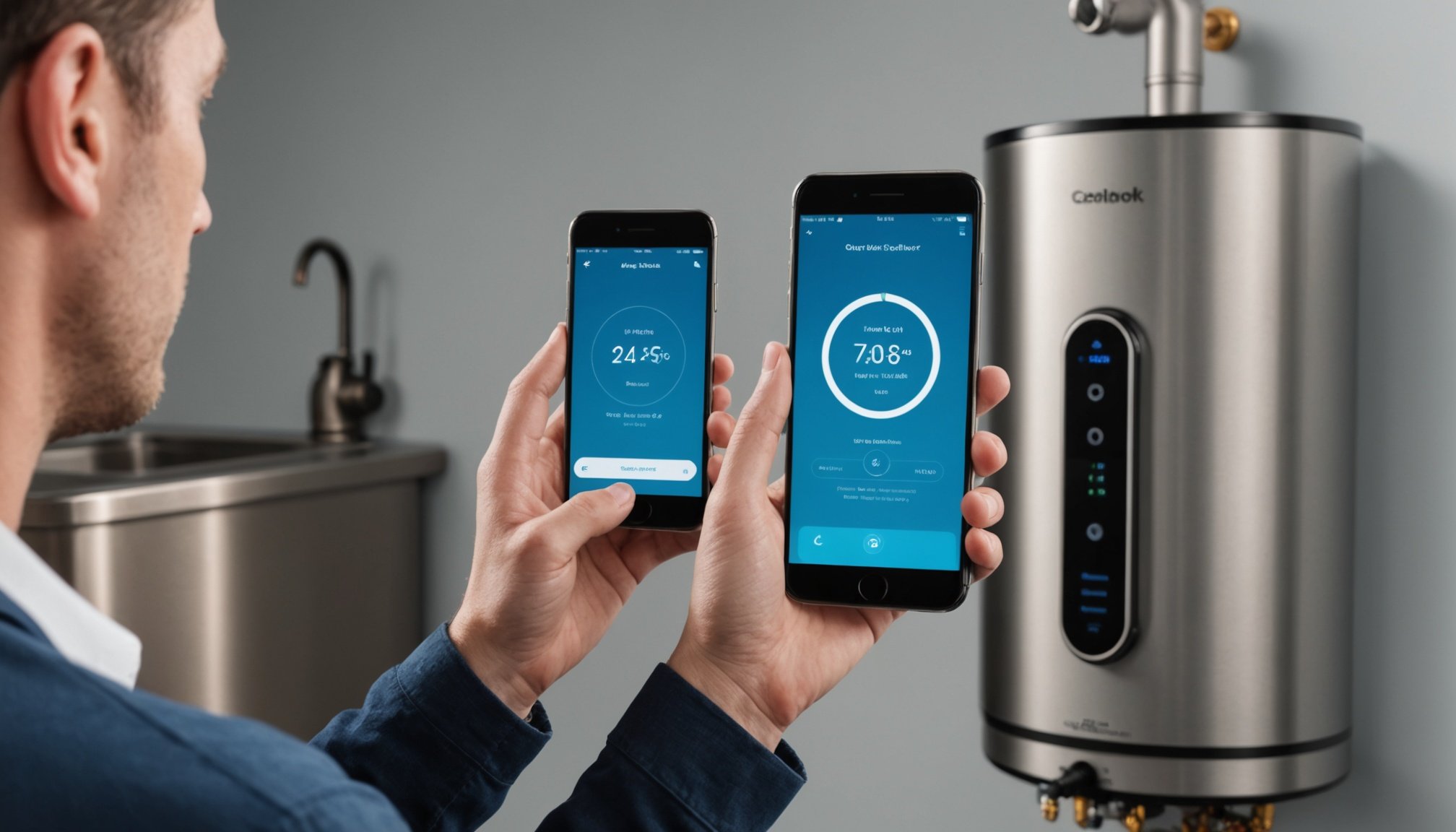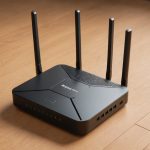Unlocking Ultimate Control: Conveniently Monitor Your Smart Home Water Heater with Your Smartphone
In the era of smart home technology, managing your home’s heating systems has never been more convenient and efficient. One of the most significant advancements in home automation is the ability to control and monitor your water heater using your smartphone. This article will delve into the world of smart water heaters, exploring their features, benefits, and how they integrate seamlessly into your smart home setup.
What are Smart Water Heaters?
Smart water heaters are advanced devices that combine traditional heating functionality with modern smart technology. These heaters are designed to be controlled and monitored remotely through a smartphone app, allowing you to manage your hot water needs with unprecedented ease.
Key Features of Smart Water Heaters
-
Remote Control: One of the most appealing features of smart water heaters is the ability to control them from anywhere using your smartphone. Whether you’re at home, at work, or on the go, you can adjust the temperature, schedule heating times, and even turn the heater on or off with just a few taps on your phone[2][3][4].
-
Energy Efficiency: Smart water heaters often come with advanced energy-saving features. For example, they can learn your daily habits and adjust the heating schedule accordingly, ensuring that you use energy only when necessary. This not only reduces your energy bills but also contributes to a more sustainable lifestyle.
Have you seen this : Ultimate guide to seamless multi-device management: unlock your smartphone’s power for effortless ecosystem control
-
Real-Time Monitoring: With smart water heaters, you can monitor your energy consumption in real-time. This feature helps you identify any inefficiencies or anomalies in your heating system, allowing you to make adjustments to optimize performance and save energy[1][2][4].
-
Notifications and Alerts: Many smart water heaters come with notification features that alert you to any issues or maintenance needs. For instance, if there’s a problem with the heater or if it detects a leak, you’ll receive a notification on your phone, ensuring you can address the issue promptly[1][3].
How Do Smart Water Heaters Work?
Smart water heaters typically operate through a combination of sensors, internet connectivity, and a user-friendly app.
Connectivity and Installation
-
Wi-Fi Connectivity: Smart water heaters connect to your home’s Wi-Fi network, allowing you to control them via an app on your smartphone or tablet. The installation process is generally straightforward and can be completed in under 30 minutes, depending on the model and your existing heating system[1][2][4].
-
Sensors and Automation: These heaters often include various sensors that monitor temperature, humidity, and other environmental factors. This data is used to automate the heating process, ensuring that your home is always at the right temperature without wasting energy. For example, the MiGo thermostat by Saunier Duval uses weather data from the nearest weather station to adjust the heating schedule accordingly[1].
Benefits of Using Smart Water Heaters
The benefits of smart water heaters are numerous and can significantly enhance your home’s comfort and efficiency.
Energy Savings
One of the most significant advantages of smart water heaters is their ability to save energy. By learning your habits and adjusting the heating schedule, these heaters can reduce your energy consumption substantially.
- Reduce heating temperature by 1°C: Save approximately 7% of energy[2].
- Automated scheduling: Heaters turn off or reduce heat when you're not home or when the house is already warm.
- Real-time monitoring: Identify and fix inefficiencies promptly.
Enhanced Comfort
Smart water heaters ensure that your home is always at the right temperature. Here are a few ways they enhance comfort:
- Pre-heating: The heater can start warming up the water before you wake up or return home.
- Zone Control: Some smart heaters allow you to control the temperature in different zones of your home, ensuring each area is at the perfect temperature.
- Voice Control: With integration with voice assistants like Google Assistant or Amazon Alexa, you can control your heater with simple voice commands[3][4].
Increased Security
Smart water heaters also offer enhanced security features that protect your home from potential issues.
- Leak Detection: Some models can detect leaks and alert you immediately.
- Maintenance Alerts: Receive notifications when the heater needs maintenance, preventing unexpected breakdowns.
- Remote Monitoring: Keep an eye on your heater's performance even when you're not at home[1][3].
Comparing Popular Smart Water Heater Models
Here’s a comparative look at some of the popular smart water heater models available in the market:
| Model | Key Features | Compatibility | Price Range |
|---|---|---|---|
| MiGo by Saunier Duval | Remote control, energy monitoring, weather integration | Saunier Duval heaters | Around €200 |
| Google Nest Learning Thermostat | Auto-learning, voice control, multi-zone compatibility | Most heating systems | Around €249 |
| tado° V3+ | Geolocation, energy reports, voice control | 95% of heating systems | Around €250 |
| Netatmo Thermostat | Auto-care, weather adaptation, voice control | Gas, oil, wood heaters, heat pumps | Around €200 |
Practical Tips for Using Smart Water Heaters
To get the most out of your smart water heater, here are some practical tips:
Optimize Your Schedule
- Use the app to set up a heating schedule that aligns with your daily routine. This ensures that the heater is only active when you need it.
Use Voice Commands
- If your heater is compatible with voice assistants like Google Assistant or Amazon Alexa, use voice commands to control it. This can be especially convenient when you’re busy or not near your phone.
Monitor Energy Consumption
- Regularly check the energy consumption reports provided by the app to identify any inefficiencies and make necessary adjustments.
Maintain Your Heater
- Pay attention to maintenance alerts and perform routine checks to ensure your heater runs smoothly and efficiently.
Integrating Smart Water Heaters into Your Smart Home
Smart water heaters are just one part of a larger smart home ecosystem. Here’s how you can integrate them with other smart devices for a seamless experience.
Home Automation
- Connect your smart water heater with other smart home devices like lights, security cameras, and thermostats. This allows for a fully automated home where all devices work in harmony to enhance your comfort and security[4].
Voice Control
- Use voice assistants to control not just your water heater but also other smart devices in your home. For example, you can say, “Hey Google, turn on the living room lights and adjust the heating to 22°C,” and everything will be set up for you[3].
Smart water heaters are a game-changer for anyone looking to enhance their home’s comfort and efficiency. With their ability to be controlled and monitored remotely, these heaters offer a level of convenience and energy savings that traditional heaters cannot match.
As you consider upgrading to a smart water heater, remember to choose a model that fits your specific needs and integrates well with your existing smart home setup. Whether you’re looking to save energy, enhance your home’s comfort, or simply enjoy the convenience of remote control, smart water heaters are an excellent addition to any smart home.
In the words of a satisfied user, “The smart water heater has been a revelation. I can control it from my phone, and it’s saved me so much on my energy bills. Plus, the peace of mind knowing that I can monitor it remotely is priceless.” With smart water heaters, you can unlock ultimate control over your home’s heating systems, making your life easier, more comfortable, and more energy-efficient.











